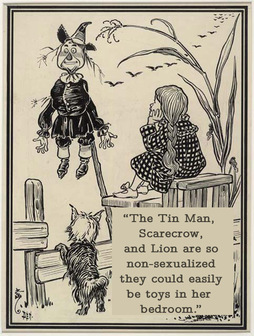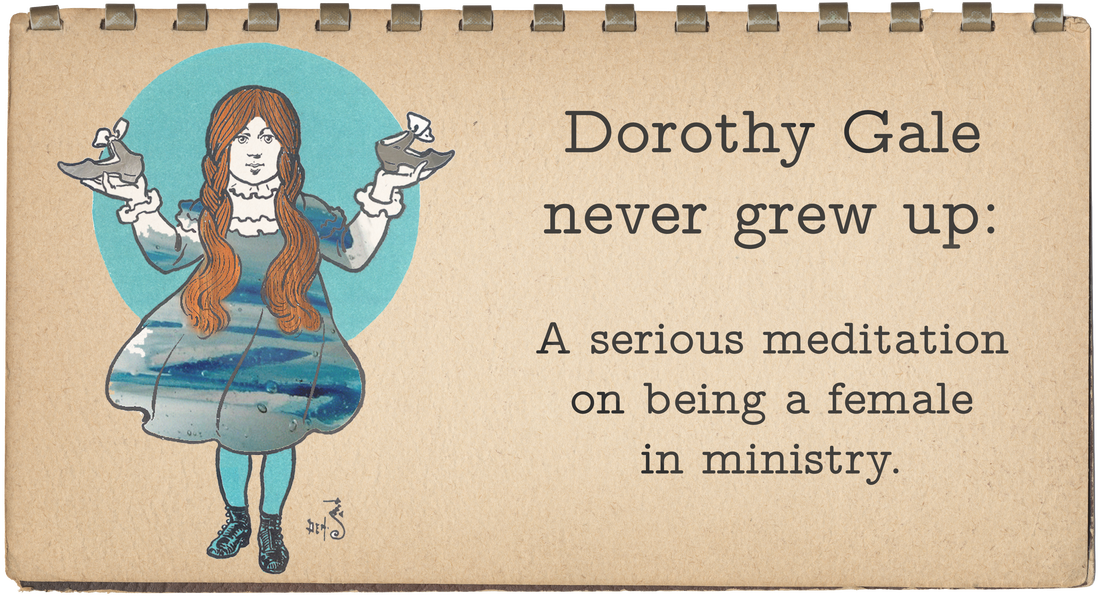|
1 There was a Pharisee named Nicodemus, a Jewish leader. 2 He came to Jesus at night and said to him, “Rabbi, we know that you are a teacher who has come from God, for no one could do these miraculous signs that you do unless God is with him.” 3 Jesus answered, “I assure you, unless someone is born anew, it’s not possible to see God’s kingdom.” 4 Nicodemus asked, “How is it possible for an adult to be born? It’s impossible to enter the mother’s womb for a second time and be born, isn’t it?” 5 Jesus answered, “I assure you, unless someone is born of water and the Spirit, it’s not possible to enter God’s kingdom. 6 Whatever is born of the flesh is flesh, and whatever is born of the Spirit is spirit. 7 Don’t be surprised that I said to you, ‘You must be born anew.’ 8 God’s Spirit blows wherever it wishes. You hear its sound, but you don’t know where it comes from or where it is going. It’s the same with everyone who is born of the Spirit.” 9 Nicodemus said, “How are these things possible?” 10 “Jesus answered, “You are a teacher of Israel and you don’t know these things? 11 I assure you that we speak about what we know and testify about what we have seen, but you don’t receive our testimony. 12 If I have told you about earthly things and you don’t believe, how will you believe if I tell you about heavenly things? 13 No one has gone up to heaven except the one who came down from heaven, the Human One. 14 Just as Moses lifted up the snake in the wilderness, so must the Human One be lifted up 15 so that everyone who believes in him will have eternal life. 16 God so loved the world that he gave his only Son, so that everyone who believes in him won’t perish but will have eternal life. 17 God didn’t send his Son into the world to judge the world, but that the world might be saved through him. John 3:1-15 CEB Nicodemus has been on my mind for the past three or so years. He reminds us we can't paint all the Pharisees as bad. There was at least one, Nicodemus, who didn't want to follow the status quo. He wasn't playing Caiaphas' game. He wanted to seek advice from Jesus... in the middle of the night. What's up with that? Why would a Pharisee go in the middle of the night to seek Jesus' advice? Because he didn't want anyone to know! That little weasel wanted his cake and to eat it too! He wanted to be able to seek discipleship from Jesus while still being able to hang out with the other Pharisees! Speaking from experience, when I garner support: I love the cheerleaders. I love those people who openly advocate for the position I'm trying to raise up. They become the real movers and shakers in the process. I am saddened by those who blatantly fight the position for no other reason than they don't like it. (Some cheerleaders give me practical advice, so the ones who blatantly fight are not helpful in the least.) Finally, I am always frustrated by those who quietly cheer in the background. They are the ones who come out of the woodwork when no one is around and say basically the same thing, "Melissa, we love you. We want to support you, but we can't. We are on the losing side of this battle. I've got my own issues to deal with." It frustrates me because if all those "playing it safe people" would speak up, there would actually be some real change in this world. I want to be angry at Nicodemus, and those like him. I want to get to some old fashion table flipping... but I can't. Jesus might have done that to the other Pharisees, the ones who were blatantly misusing the temple, but not with Nicodemus. With Nicodemus, he just spoke the truth. Eventually, Nicodemus would come out of the woodwork during the sanitizing light of day. True, it would be with Joseph of Arimathea to bury Jesus, but he would willingly state what he believed when all the chips were down. Could that have happened if Jesus berated him in private? I doubt it. I've got this sneaky feeling Jesus could have been frustrated too. In the end, all you can do is follow Jesus' example. In your frustration, speak the truth in love. Maybe that truth won't take root in the moment. Instead, maybe that truth will be like a seed, and years later, when you are not even present with that person, they will begin to blossom and take your truth to heart.
1 The Lord’s power overcame me, and while I was in the Lord’s spirit, he led me out and set me down in the middle of a certain valley. It was full of bones.2 He led me through them all around, and I saw that there were a great many of them on the valley floor, and they were very dry. 3 He asked me, “Human one, can these bones live again?” I said, “Lord God, only you know.” 4 He said to me, “Prophesy over these bones, and say to them, Dry bones, hear the Lord’s word! 5 The Lord God proclaims to these bones: I am about to put breath in you, and you will live again. 6 I will put sinews on you, place flesh on you, and cover you with skin. When I put breath in you, and you come to life, you will know that I am the Lord.” 7 I prophesied just as I was commanded. There was a great noise as I was prophesying, then a great quaking, and the bones came together, bone by bone. 8 When I looked, suddenly there were sinews on them. The flesh appeared, and then they were covered over with skin. But there was still no breath in them. 9 He said to me, “Prophesy to the breath; prophesy, human one! Say to the breath, The Lord God proclaims: Come from the four winds, breath! Breathe into these dead bodies and let them live.” 10 I prophesied just as he commanded me. When the breath entered them, they came to life and stood on their feet, an extraordinarily large company. 11 He said to me, “Human one, these bones are the entire house of Israel. They say, ‘Our bones are dried up, and our hope has perished. We are completely finished.’ 12 So now, prophesy and say to them, The Lord God proclaims: I’m opening your graves! I will raise you up from your graves, my people, and I will bring you to Israel’s fertile land. 13 You will know that I am the Lord, when I open your graves and raise you up from your graves, my people. 14 I will put my breath[a] in you, and you will live. I will plant you on your fertile land, and you will know that I am the Lord. I’ve spoken, and I will do it. This is what the Lord says.” Ezekiel 37:1-14 CEB Sermon illustration forthcoming. Maybe you've heard it before. I know I've heard it a couple of times: Once there was a woman who found herself stuck in a house during a really bad flood. The waters were beginning to rise and fill into her house. She prayed, "Dear God, save me from this flood." A moment later a man floated by in a boat. "Ma'am, jump into the boat, and I will bring you to safety." "No," she responded, "I'm waiting for God to save me." The young man tried to talk her into getting in the boat, but she wouldn't budge. The waters continued to rise. They rose so high she had to go up her stairs to the second story. Once again she went to pray, "Dear God, save me from this flood." A moment later the Coast Guard came by in their boat. Knowing they would force her to leave, she hid in the house. "God will save me," she thought. The waters continued to rise. The rose so high she had to go up on top of her roof. Once again she went to pray, "Dear God, save me from this flood." A moment later a helicopter arrived and dropped a ladder for her to climb up to safety. She refused to climb, and eventually the helicopter gave up to save others. When the helicopter returned, it was too late. The waters rose too high, and she drowned. In heaven, the woman went to God, "Why did you not save me?" God replied, "Save you! I sent two boats and helicopter!" A few things jump out at me regarding the scripture today. The most blaring has to do with the illustration I just shared. We want God to do it all, when that's not how this works. We are not here to be catered to by the All Mighty. God isn't some magical wish granter. We live in this world to be in relationship with one another and God. This requires us to take some action in the divine plan. Notice in the scripture, dry dead bones came to life. No one can deny it was God who gave life where it appeared life had concluded. Where we tend to gloss over, is God gave the initiation of the event to Ezekiel. In other words, we have a part in God's plan! So a bunch of bloggers are up in arms because the American church is bleeding out. Here's the obvious question: What are they/you doing about it?! Instead of praying, "God, fix this problem," perhaps you should be praying, "God, help me find the tools to fix the problem." In other words, trust God enough to find the boat and take it. It just might save our lives.
1 Theophilus, the first scroll I wrote concerned everything Jesus did and taught from the beginning, 2 right up to the day when he was taken up into heaven. Before he was taken up, working in the power of the Holy Spirit, Jesus instructed the apostles he had chosen. 3 After his suffering, he showed them that he was alive with many convincing proofs. He appeared to them over a period of forty days, speaking to them about God’s kingdom. 4 While they were eating together, he ordered them not to leave Jerusalem but to wait for what the Father had promised. He said, “This is what you heard from me: 5 John baptized with water, but in only a few days you will be baptized with the Holy Spirit.” 6 As a result, those who had gathered together asked Jesus, “Lord, are you going to restore the kingdom to Israel now?” 7 Jesus replied, “It isn’t for you to know the times or seasons that the Father has set by his own authority. 8 Rather, you will receive power when the Holy Spirit has come upon you, and you will be my witnesses in Jerusalem, in all Judea and Samaria, and to the end of the earth.” 9 After Jesus said these things, as they were watching, he was lifted up and a cloud took him out of their sight. 10 While he was going away and as they were staring toward heaven, suddenly two men in white robes stood next to them.11 They said, “Galileans, why are you standing here, looking toward heaven? This Jesus, who was taken up from you into heaven, will come in the same way that you saw him go into heaven.” What brought the writer of Luke and Acts to do all this research for a guy named Theophilus? We can only speculate. Most theologians believe he was, at least, a real person. (The name wasn't made up to symbolize a larger audience.) I focus on passages like this because they were the biblical scriptures no one told to me until I was in seminary. Well, OK, I've heard Acts 1, but everyone dropped verse 1. I'll admit, in my younger days I would have done the same thing. I wouldn't have known what to do with it, so I would have left it off. Anyway, what does the introduction have to do with the summary of Jesus' death and ascension? Today, my attitude is drastically different. If we are going to understand the whole of the scripture as it pertains to us now, we have to be like detectives. It's not good enough to just read the scripture. We need to understand the context of the time it came from. The first sentence, at the beginning of Acts, tells us a great deal. The Gospel of Luke and Acts of the Apostles go together. The Gospel writer, using secondary sources (see Luke 1:1-4), tries to tell Theophilus the story of Jesus Christ and the Apostles. It is because of this writer, we know there were once primary sources. (The reason I don't call the writer "Luke" is because we assume the writer was the Apostle Luke. However, from the first four verses of Luke we learn the writer is not one of those who were one of those primary sources. His name could very well be "Luke," but I choose not to call him that, to avoid confusion.) Part of what makes the story of Jesus Christ so compelling, is knowing why Luke and Acts exist. People who were there, were sharing the story. It wasn't like some guy locked himself up in an attic, and crafted a story. I believe, the story was spreading enough it piqued the interest of someone completely unrelated to the initial event: The writer of Luke and Acts. That is one of the reasons I am still a Christian. Years ago I thought I would be shunned because I wanted to ask the deep questions. Today, I realize the reason I'm in the Christian Church (Disciples of Christ) is because this is a faith tradition that seeks those kinds of questions.
Dorothy Gale never grew up. If you read Frank L. Baum’s books, eventually Dorothy, and her aunt and uncle, are whisked away to Oz to live. Since no one ages in Oz, Dorothy will forever be the little girl. This thought entered my mind as I considered the implications of Dorothy’s youth. She was allowed to be the hero without the overused subplot of romance. Other stories, featuring older female heroes are different. They remind me of a woman’s place. In Hunger Games, Katniss Everdeen’s salvation is ultimately tied to her choice of Peeta or Gale. In Frozen, Anna’s big lesson is not to rush into choosing a partner, but the happy ending still involves a hook-up. In Outlander, we are supposed to see Claire as a strong female lead, while her big choice is whether she should stay with her future husband or her past husband. (It’s OK Claire, your decision will be made simple by the other male coming out as a misogynistic cheater.)  I ultimately realized, as long as Dorothy remained a child, she could be whatever she wanted to be. We don’t have to see her story tied to matrimony. Anyway, it wasn't like she could fall in love with any of her companions. They all lacked human masculinity. The Tin Man, Scarecrow, and Lion are so non-sexualized, they could easily be toys in her bedroom. Even knowing this, I want her to grow up. I want to see what she looks like as an adult. Something happens to our girls. They reach a certain age, and everything is tied to their sex. In some ways it’s overt, and in other ways it’s very subtle. When purchasing summer clothes for a young girl, it’s very difficult to find shorts that are bigger than a washcloth. Female-focused stories can have a strong heroine, but only if her happy ending is tied to finding a guy. While a girl can be anything, a woman can be anything within her sexualized self. How would Dorothy handle this shift of purpose? Would she avoid marriage completely? Some women have, and lamented it. Guys can have marriage and a career. Women are often put in the situation where they must choose one or the other. Women, seeking equality, have spent generations trying to be like men. Maybe that’s not the answer. With men, their fictional stories can be told without the sexual subtext. Our Hero stories are not hidden means to find them a spouse. If the hero does find love, it is packaged like a prize at the end of the journey. They can be our heroes without anything attached to what that means. If a man gives his heart and soul to the job, there are not many voices saying, “Why isn’t he home with the wife and kids?” This is what exists under the surface of the subject of women in ministry. Our real life Dorothys must eventually grow up and deal with choices in relationship to others. Now to take a drastic shift from most female voices out there: This shouldn’t be a female thing; this should be a human thing. I once wrote, “We are not fighting a war on women, we are fighting a war on standards.” There is nothing wrong with the standard women are living out their call. Women ministers have to attempt to be without blame. They have to explain their calling within a scriptural context. If they are married, they must live out their ministerial call while also living out their family call. The issue is whether male ministers are living into the same standard. I question whether that is always the case. We are fighting a war on standards, because we want our male counterparts to be held to the same litmus test as us. These kind of assessments are embraced in regards to the general society. It’s when we move them to the church, the egg shells are spilled all over the floor, and everyone is forced to walk on them. The thing is, I’m not some manager seeking equality among my male counterparts. I’m a minister. It is my call. I know naming all those female leaders in the Bible isn’t going to help me. Deborah the Judge, Anna the Prophetess, or Lydia and Priscilla the missionaries cannot stand up against Paul. That’s just alright with me. I had said this was a war on standards, and I plan to use Paul’s words to explain how.
When I read any Biblical text, the first consideration I make is context. During this time period, women were property. Only a small percentage knew how to read basic items for work related reasons. An even smaller percentage knew how to write. This made education a commodity. It was not the daughters being taught how to read and write. While there were exceptions to the rule, there wouldn't have been women who could have read these early writings about Jesus Christ. All of this has to be taken into consideration when reading Paul’s words. Women were uneducated property. Half of this early truth, isn’t truth anymore. No one owns me, not even my husband. As for the other half, I have been to school to learn to read and write. I have also been to seminary to specifically learn about Christianity. I am an educated free female. I do not think this scripture was meant for my context. This doesn't mean we should throw it out. What does our communal context do with this scripture? The answer is education and priorities. Women are called to be wives and mothers in the home, just as men are called to be fathers and husbands. As women pick up the mantle of pastoral leadership, they are retaining their familial roles. In other words, our Dorothys are growing up, and they can be anything they want to be within their feminine selves. This is uncomfortable. We have male ministers who are not educated, and sacrifice their familial roles as ministers. We have spent generations glorifying these men. I believe, they have become the very thing Paul was rebuking in 1 Corinthians 14. Instead of the females being the uneducated voices, there are males who have taken their place. The roles have reversed, and now is the time when some men need to keep silent in church. We are fighting a war on standards because many females have become highly educated, family centered leaders. We have raised our own bar. We don’t want to drop down to this undereducated masculine standard, where some ignore the family for the sake of the job. We don’t want to be treated the same, in that respect. We want that standard raised. We want males to be treated like us. Dorothy must grow up, and in growing up she can take the female mantle with pride. I know I have. I am a female minister.
|
Categories
All
Archives
October 2023
|











 RSS Feed
RSS Feed